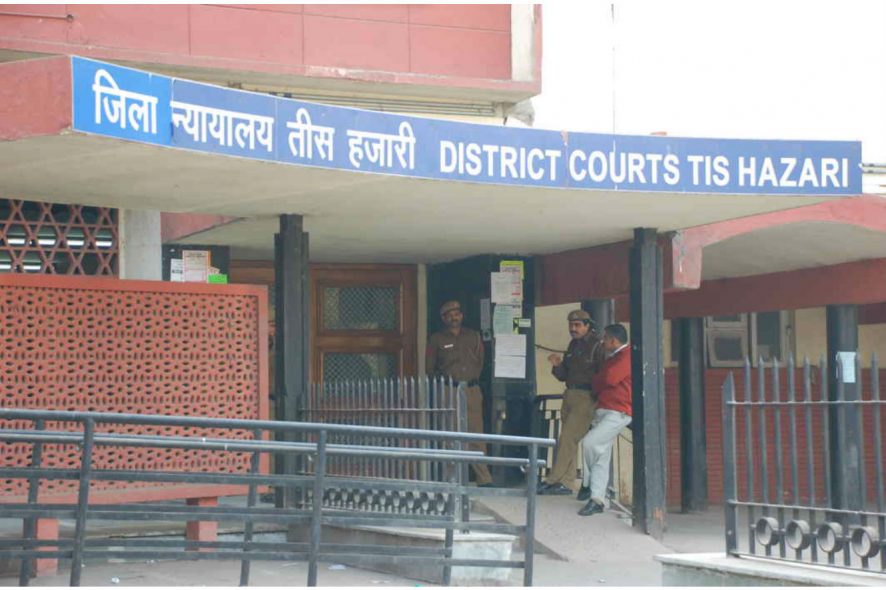Tis Hazari Court, Delhi: Holding that, post-termination non-compete clauses in employment contracts are “restraint of trade” and it is impermissible under Section 27 of the Act, Richika Tyagi, C.J-02, expressed that such agreements of restraint are vid because of being unfair and depriving an individual of his or her fundamental right to earn a living.
Plaintiff filed the present application to restrain the defendants and his legal heirs/attorney/assignees/executors/representatives/nominees/servants/employees or any other person on their behalf restraining them permanently from establishing/approaching/making contact with the customers of the plaintiff till the pendency of the suit.
Plaintiff’s plea was based on a memorandum executed between the plaintiff and defendant. It was stated that the defendant was an employee of the plaintiff and ceased working at the plaintiff’s firm on 28-1-2021.
Conditions to be satisfied before granting temporary injunction:
- Prima facie case in the favour of the plaintiff and against the
Prima facie case does not mean that the plaintiff should have a cent percent case which will in all probability succeed in trial. Prima facie case means that the contentions which the plaintiff is raising, require consideration in merit and are not liable to be rejected summarily.
- Balance of convenience in favour of the plaintiff.
To see balance of convenience, it is necessary to compare case of parties, comparative mischief or inconvenience which is likely to sue from withholding the injunction will be greater than which is likely to arrive from granting it.
- Irreparable Injury likely to be caused to the plaintiff which cannot be compensated in terms of money.
Ordinarily injury is irreparable when without fair and reasonable address of Court, it would be denial of justice. Very often an injury is irreparable where it is continuous and repeated or where it is remediable at law only by a multiplicity of suits. Sometime the term irreparable damage refers to the difficulty of measuring the amount of damages inflicted.
Mere proof of one of the above conditions would not entitle a person to an order of temporary injunction.
Section 27 of the Indian Contract Act, 1872 has to be delved in by the Court since in the present application the restraint sought by the plaintiff is with regard to right to trade, business and profession of the defendant.
What does Section 27 of the Indian Contract Act, 1872 state?
“…every agreement by which any one is restrained from exercising a lawful profession, trade or business of any kind is to that extend void. There is one exception to this rule-that if the goodwill of a business has been sold, an agreement to refrain from carrying on similar business, if it appears to the Court to be reasonable, would be protected and would be enforced.”
In Supreme Court’s decision of Superintendence Company of India v. Krishna Murgai, (1981) 2 SCC 246, the Supreme Court while discussing the objective behind Section 27 of the Act analyzed the difference of negative covenant between an employer-employee and a seller-purchaser and stated that a negative covenant between the employer – employee, pertains to performance of personal service which is altogether different in substance from purchase and will have vastly different social and economic implications. The essential line of distinction is that the purchaser is entitled to protect himself against competition on the part of his vendor, while the employer is not entitled to protection against mere competition on the part of his servant. A restrictive covenant ancillary to a contract of employment is likely to affect the employee’s means or procuring a livelihood for himself and his family to a greater degree than that of a seller, who usually receive ample consideration for the sale of the goodwill of his business.
Rationale for Rule against Restraint of Trade
An employment contract generally includes restraint of trade clause to protect the interest of the employer after an employee leaves their organization or business for the following reasons:
- Non-compete clause prevents the employees from competing with their former employer for a reasonable period of time the employees can compete by opening a similar business or working with a rival business.
- Non-solicitation clause prevents the employee to solicit his former employer’s clients for a reasonable period of time.
- Non-recruitment clause prevents the employee to hire the former employer’s employee for a reasonable period of time.
- Confidentiality clause prevents the employee from disclosing the former employer’s confidential information.
Significantly, for a contract to be enforceable, the restraint of trade clause must be reasonable.
Supreme Court in Gujarat Bottling Co. Ltd. v. Coca Cola, (1995) 5 SCC 545, held that courts in India have only to consider the question whether the contract is or not in restraint of trade.
In another case of Independent News Service (P) Ltd. v. Sucherita Kukreti, 2019 SCC OnLine Del 6756, in the context of Section 27 of the Contract Act, it was held that the right saved thereby to be a facet of Article 21 of the Constitution of India.
In the present case, Court held that the restraint cannot be allowed in such a form whereby it violates the fundamental right of the defendant to carry on his trade, business or profession.
Adding to the above, Bench expressed that it cannot restrain the defendant from using his own acumen or skills to compete with the plaintiff in the same kind of business.
“…the plaintiff entered into this agreement of restraint with the defendant when the defendant was not the employee of the plaintiff.”
Noting that the restriction being sought was unreasonable, plaintiffs’ application was dismissed.
Matter to be put up for further proceedings on 13-4-2022. [Rajesh Kumar Gandhi v. Mukesh Dutt, Suit No. 901 of 2021, decided on 27-1-2022]
Advocates before the Court:
Trilok Chand, Counsel for defendant






